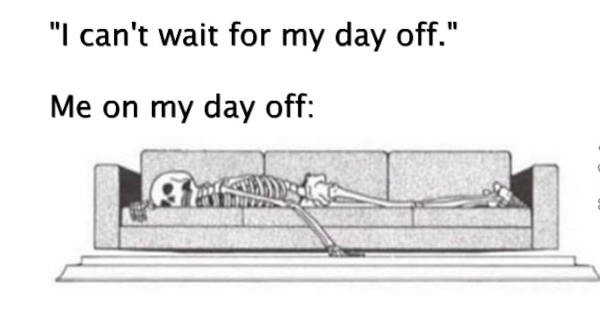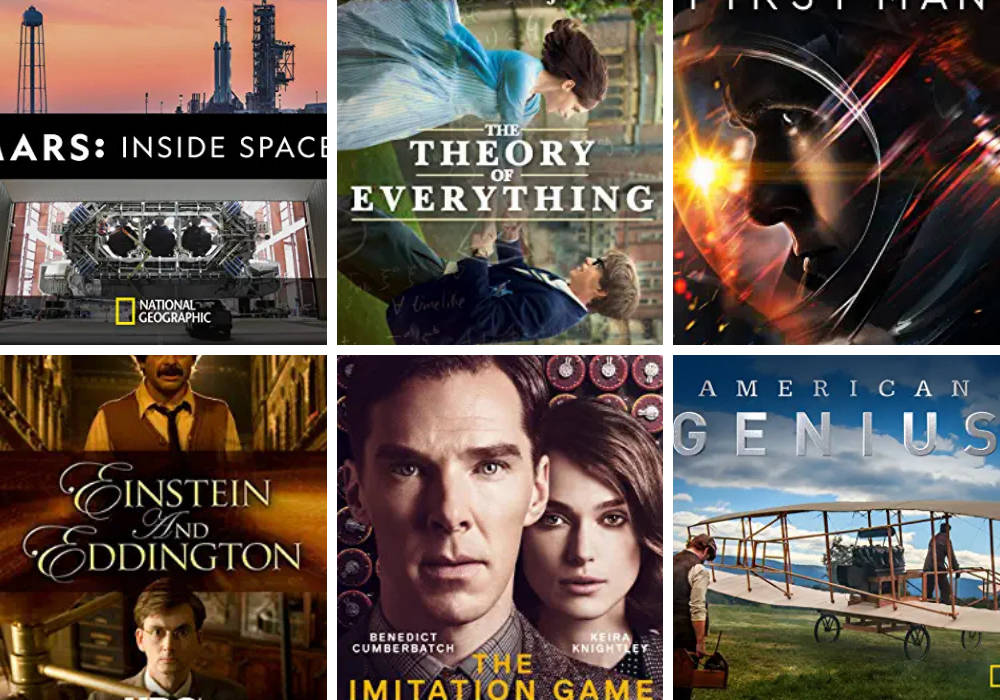[Posters from amazon.com]
Good Morning,
This anecdote was shared with us by a trained dancer in a virtual learning group some of us on the team frequent. It offers much to think about.
“Applying knowledge takes time, attention, repetition. But we’re bombarded with so much that FOMO prevents us from focusing on one thing.”
To illustrate her point, she shared her personal narrative.
“I used to practice ballroom dancing. The first three years I was practicing in the city that was considered the best in Poland (for the quality of dancers). Later I had to move and the other seven years was practicing in a city considered the worst.”
Over time, she could see two differences in how teachers at the best and worst cities led the weekly lessons.
In the best city, she says, “The teacher stayed focused on one core thing during the lesson. It was a deep dive. Every other little tip was connected to it, and then we practised it until we could not move our muscles anymore. And on the next lesson we started from checking if everybody got this and trained it to perfection. If not, we weren’t allowed to move on. We had to start all over again.”
But in the city where bad dancers came from, “every lesson was a delicious time.” She talks about the fun she was having with “tons of new information: I was literally taking notes! So much new knowledge, tips and tricks. But then when trying to practice all of it… nope. The dancers from this city looked the worst during competitions. There was no excellence at anything.”
The takeaway from her narrative is depth matters over breadth. But is that always true? We’d love to hear what you think.
In this issue.
- FF Recommends: Science movies to binge watch
- Sunday feeling
FF Recommends: Science movies to binge watch
Feature films
The Theory of Everything
For the ’80s and ’90s kids, Stephen Hawking's A Brief History of Time was what Yuval Noah Harari's Sapiens, A Brief History of Humankind is today. It changed the way you look at the world. Only, Hawking's life is far more dramatic (battling a degenerative disease), and his contributions to his field, far more awe-inspiring. The movie is based on Jane Hawking’s memoir, Travelling to Infinity: My Life with Stephen. Watch it also for the brilliant performances by Eddie Redmayne and Felicity Jones playing the lead characters.
Quote: “However bad life may seem, there is always something you can do, and succeed at. While there's life, there is hope.”
Watch it on: Amazon Prime / Netflix
A Beautiful Mind
John Nash published a path-breaking paper on Game Theory when he was still in his 20s, and was awarded a Nobel Prize for his work four decades later. In between, he had to face hell, battling a mental illness. In A Beautiful Mind, Nash is portrayed by Russell Crowe. Crowe is brilliant playing real-life characters (Roger Ailes, the powerful Fox News CEO in the miniseries The Loudest Voice last year, and Jeffrey Wigand in The Insider back in 1999). It's great as a movie, but if you want a more faithful account of Nash's life, read Sylvia Nasar’s book (same name) on which the movie is based.
Quote: “What truly is logic? Who decides reason? My quest has taken me to the physical, the metaphysical, the delusional, and back.”
Watch it on: Amazon Prime
The Imitation Game
This is the Age of Artificial Intelligence, and AI can be traced back to the pioneering work of Alan Turing. Turing also has an Indian connection. His father worked in the Indian Civil Service. A bungalow once occupied by Turing’s grandfather in Coonoor, Nilgiris, is now owned by Nandan Nilekani. Of course, you won't find any reference to all these in The Imitation Game. It mostly focuses on Turing's contribution in building a machine for the British during the World War II to interpret the codes sent by Germany’s Enigma, and the politics around it, and his own homosexuality that made his life difficult.
Quote: “Of course machines can’t think as people do. A machine is different from a person. Hence, they think differently. The interesting question is, just because something, uh… thinks differently from you, does that mean it’s not thinking?”
Watch it on: Amazon Prime / Netflix
First Man
After decades of ignoring the Moon, in the last few years, there has been fresh interest in lunar missions. Now, there are many players in the race—the US, China, India, and also private space companies. In the 60s, the race was between the US and USSR. First Man is about Neil Armstrong and the events that led to his being the first man to set foot on the Moon. We have come a long way since the early days, but to watch the movie is to remind ourselves that space was a risky business, involving personal sacrifices, and it’s probably so even today.
Quote: “I don't know what space exploration will uncover, but I don’t think it’ll be exploration just for the sake of exploration. I think it’ll be more the fact that it allows us to see things. That maybe we should have seen a long time ago. But just haven’t been able to until now.”
Watch it on: Netflix
Infinity
Everybody loves Richard Feynman, even though, these days, his life has also come under intense scrutiny like every other icon of the past. If you liked Feynman’s two popular books, Surely, You Are Joking Mr Feynman, and What Do You Care What Other People Think?, you will like this movie. But, it’s mostly centred around the relationship between Feynman and his first wife Arline Greenbaum (who died of tuberculosis) and the Manhattan Project.
Quote: “Mathematics is a language. It’s very difficult. It’s subtle. You couldn’t say those things any other way—and I can talk to dead people with it.”
Watch it on: Amazon Prime
Einstein and Eddington
No war is fought with guns alone. They are also fought with minds and intellect. Thus the fight between England and Germany was also a fight between the ideas of Isaac Newton, one of the greatest scientists ever, and Albert Einstein, who shifted the paradigm. In a war, everyone loses. The film, Einstein and Eddington (played by Andy Serkis and David Tennant), shows that ultimately, in the battle of ideas, when it’s fought under the rigours of science, everyone wins.
Quote:
Max Planck: “May I ask you a very serious question? What if God were to say you were mistaken? If he said ‘Stop. Newton is right’?”
Albert Einstein: “Then I would thank God for his point of view, and we would agree to differ, and I would be left feeling very sorry for God.”
Watch it on: Hotstar
Documentaries
Inside Bill’s Brain
One of the most-watched YouTube videos earlier this year, as the reality of the novel coronavirus hit us stronger every passing day, was a video of Bill Gates warning us about how unprepared we are to face a pandemic that just hit us. The video was from 2015. The three-part documentary takes us through Gates’s thinking process. Watching a documentary won't make us smarter any more than reading a book on bodybuilding will make us stronger. But there are some useful tips we can pick up along the way.
Watch it on: Netflix
The Age of AI
Conversations around AI are often abstract, intellectual, jargon-ridden, and opinionated. The Age of AI makes it fun (It's anchored by Robert Downey Jr, who, by playing Iron Man, has become a public and popular face of AI). And more importantly, it humanises the technology by talking about real people, and the real emotions they feel—the pain on the face of a man who breaks his bionic leg, the joy on the faces of parents upon hearing their son’s voice (which was damaged by ALS).
Watch it on: YouTube
American Genius
There are many ways to look at the evolution of technology. American Genius takes up some of the inventions that altered the course of history—press, aeroplane, television, computers. And it explores them through battles between some of the most interesting characters—for example, Bill Gates and Steve Jobs; William Hearst and Joseph Pulitzer and so on. Inventions are made in the lab, but they come to life in society, not just through collaborations but also through rivalry.
Watch it on: YouTube
Mars: Inside SpaceX
You shouldn't—and you simply can’t—ignore Elon Musk. Tesla, SpaceX, Neuralink—are having an outsized influence on how we think about technology and our future. But, who is this Elon Musk? How does he operate? How does he engage with his team? What dilemmas does he face? This short documentary throws light on all that, and in the process, you also get to know of SpaceX, and its broader mission to make human beings interplanetary species.
Watch it on: Hotstar
Sunday blues

(Via WhatsApp)
Feeling plastered on a Sunday? Many people say they are feeling this way even on days off. Or do you have an altogether different narrative about how to feel ebullient on a day off? Let us know on our Slack channel. Everyone will appreciate it.
And if you missed previous editions of this newsletter, they’re all archived here.
Bookmark Founding Fuel’s special section on Thriving in Volatile Times. All our stories on how individuals and businesses are responding to the pandemic until now are posted there.
Warm regards,
Team Founding Fuel

